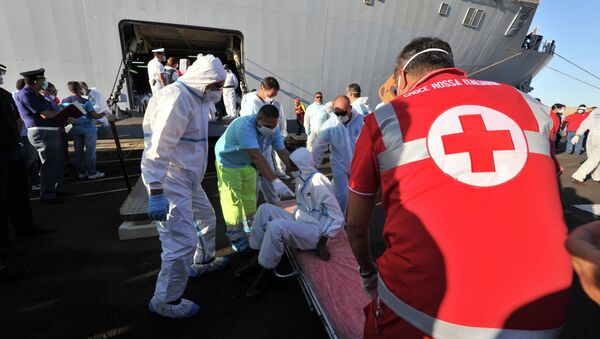Last year, the Mare Nostrum rescue mission, launched by the Italian government in 2013, ended.
“While the end of Mare Nostrum has not led to a drop in departures, it can however reasonably be linked to an increase in deaths at sea,” Amnesty International said in a briefing.
According to the watchdog's calculations, the death toll in the Mediterranean in 2015 is 100 times greater than in 2014, amounting to as many as 1,700 victims.
To replace Mare Nostrum, the EU agency for external borders Frontex established a joint operation called Triton beginning November 2014.
Amnesty International called on the EU authorities to “urgently deploy more resources in the context of a European multi-national humanitarian operation dedicated to assisting refugees and migrants in peril in the central Mediterranean.”
The briefing was published ahead of the Thursday emergency summit in Brussels on the Mediterranean migrant crisis. The meeting comes less then a week after a boat with migrants capsized on Sunday while heading from Libya to Italy, leaving up to 800 people dead.
The Mediterranean is one of the main routes for migrants fleeing conflicts in North Africa and the Middle East. Due to current instability in the region, the number of asylum-seekers has increased dramatically. According to the UN Refugee Agency, the amount of migrants arriving to Europe by sea has increased by 60 percent in the beginning of this year compared to January 2014.
At least 3,500 people died crossing the sea in 2014, according to the United Nations estimates.




